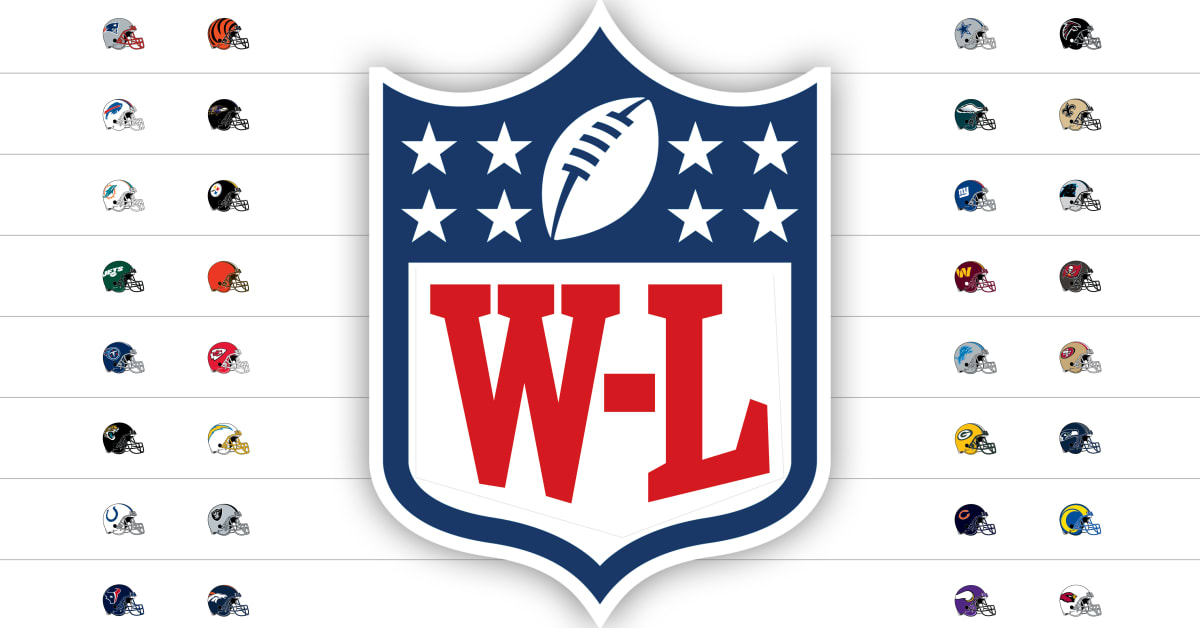How To Analyze The Player And Team Stats To Make American Football Nfl Predictions
When making NFL predictions, understanding team and player statistics is essential for making informed decisions. Here are 10 ways to effectively analyze the data:
1. Look at key defensive and offensive statistics
Concentrate on metrics such as yards per game (both offensive and defensive) as well as points scored and points allowed. These metrics give you a good idea of how good your team is on both sides.
2. Calculate the Margin of Turnover
The margin for turnover has a significant correlation with game outcomes. Teams that win the turnover battle consistently often win matches. Examine both giveaways and takeaways.
3. Consider Quarterback Performance
The quarterback is usually the most important player. Review stats like completion percentage, yards per attempt, touchdown-to-interception ratio, and QB rating. Be sure to consider how the QB responds to pressure.
4. Situational Statistics
Pay attention to how teams perform at specific time points, such as third-down efficiency or scoring in the red zone. Also take note of their performance in the 4th quarter, under pressure and so on. These factors can be the difference between winning or losing a game.
5. Check the effectiveness of your schedule
It’s possible for a group to be unable to discern a false record if they don’t know the competition’s quality. If you want to know if the team’s record is due to a weaker schedule, you should look at the reasons behind it.
6. Injuries and player availability
Injury can drastically alter the overall performance of a team. Keep an eye out for injury reports.
7. Look at Recent Performance Indicators
Teams and players may be on cold or hot streaks. Consider performance trends for the last few weeks instead of relying on season averages.
8. Incorporate Advanced Metrics
Use advanced statistics such as the DVOA (Defense Adjusted Value Over Average), EPA grades (Expected points added) as well as PFF grades. These metrics provide greater insight into team performance and player efficiency than simple statistics.
9. Study Matchups
Concentrate on the alignment of teams’ strengths. As an example an example, a strong rushing attack against a bad defense for running can provide you with an enormous advantage. You shouldn’t only look at the overall stats. Also, consider the way each team performs against each other.
10. Be aware of the weather and geographical location
The weather, such as snow, rain, or wind, can have a significant influence on the outcome an event, especially in outdoor stadiums. It is also worth considering the advantage of playing at home as some teams are significantly more successful.
Extra tip: Be aware of bias in the media.
The popularity of a player or team or recent success could cause the public to overvalue them. Make use of statistical analysis to pinpoint which areas the public may be mistaken and where the worth bets are.
Through careful analysis of every one of these aspects It is possible to increase the precision of your NFL predictions. Have a look at the best Best NFL Picks Model for blog advice including nfl foot ball, nfl nfl preseason, nfl foot ball, nfl picks from experts, nfl preseason, today on nfl, nfl football week 1 predictions, nfl football game, american football ravens, football play and more.

Home Field Advantage Is Crucial When Predicting American Football Nfl Predictions.
Home field advantage could be a major factor in NFL games, and correctly understanding this could enhance your predictions. Here are 10 suggestions that will help you determine the home field advantage.
1. Compare home. away performance
To begin, look at the team’s performance at home with its road performance. Examine the ratio of win-loss, points earned and points conceded at home in comparison to games played away.
2. Stadium Environment
Assess the effects of the specific stadium’s environment. Some stadiums are louder than others, like Arrowhead Stadium or Superdome. This can impact the communication between teams that are competing and their game-calling.
3. Weather and Climate Conditions
Evaluate the impact of climate and weather on the game. Teams who are used to extremes in temperature, altitude, or cold have an advantage over teams playing in the visiting stadium who do not.
4. Travel Fatigue in Teams Visiting
Take into consideration the travel distances and logistics of the visiting team. Travelling across country, especially during time zone changes, can cause fatigue and impact performance. Teams that have short work hours can also be at a competitive disadvantage.
5. History of Trends
Examine the performance of your team during the previous seasons. Certain teams perform better at home, regardless of the opponent or season due to factors such as crowd support or the comfort of the surface.
6. How can you assess the advantage of home field during divisional games
Divisional games often see a heightened home field advantage due to the familiarity of the field and rivalries. The games can be more intense. In addition the support from home fans is a huge motivator for the team.
7. Crowd Noise: What to Consider
Examine how the team uses the noise of the crowd to their advantage especially when it comes to defense. Crowds that are loud interfere with snap counts of opponents leading to errors and penalties.
8. Recent Trends in Performance
Consider the recent performances of your team at home. It is possible for teams to go through periods of especially excellent or poor home performance due to injuries, changes in coaching or team dynamics.
9. A key element in the home team’s style of play
Think about how the team’s playing style is suited to the environment in which it plays. For example, teams that have strong running games may benefit from playing in a rainy weather, while speedy, high-scoring offenses could excel in conditions in a dome.
10. Account for Energy and Fan Attendance
Take into consideration the energy and presence of fans. In some cases a team’s advantage at home could be weakened due to a lackluster or low-attendance fan base.
Bonus Tip: Assessing the Impact of Coaching
Certain coaches excel at leveraging the advantage of playing at home using game plan, play calling and even motivation. Consider the coach’s track record and how they train their teams to maximize their home advantage.
By using these suggestions and tricks, you’ll be in assessing the impact of home field advantages when making NFL forecasts. This can lead to a more successful outcome. See the recommended NFL for more tips including nfl football news, nfl football week 1 predictions, game for nfl, nfl preseason nfl, expert nfl football picks, nfl football game, nfl picks, nfl predictions, american football ravens, football games on nfl and more.

10 Tips To Monitor Weather Conditions When Making American Football Nfl Predictions
The weather could have a huge impact on NFL games. Everything from the performance of players to way of playing is affected. Here are 10 ways to track the weather and formulate NFL predictions.
1. Make sure to check weather forecasts early and Regularly
Start checking forecasts for weather conditions during the week, and keep checking for updates up until game time. Be aware of the weather conditions is vital since they are prone to change quickly.
2. Understanding the impact of rain
Rain can cause slippery conditions which affect the ball’s footing and handling of players, and also the speed of the game. In slippery and wet conditions teams with strong running strategies and who are able to hold the ball tend to gain an advantage. Passing game may be affected.
3. Assess Wind Speed and Direction
The wind is a significant weather factor. The force of winds can have a negative impact on the game of passing, as well as kicking accuracy. Teams that rely on passing might struggle, but teams with a strong quarterback may be able to deal with the winds better.
4. Consider the Snow and Cold Conditions
Teams that have good running skills and strong defenses are often preferred by cold and snow weather. Teams and players who are from colder climates tend to perform better.
5. Assess the effects of Heat and Humidity
Heat and humidity can cause fatigue in players particularly for teams that are not familiar with playing in these conditions. Teams from cooler climates could struggle to maintain their endurance in hotter conditions, particularly in the second halves of games.
6. Check the Field Conditions
Conditions in the weather can affect playing surface. The effects of snow and rain could create muddy, icy surfaces. Heat can make grass dry, making a rough playing surface. Artificial turf is more resilient to the elements than natural grass, which is why it is important to take this into consideration too.
7. Monitor the types of precipitation and intensities.
Different types of precipitation (e.g. heavy rain, light rain, snow, sleet) impact different aspects of the game. The heavy rain can cause a more cautious game-calling, and the emphasis being placed on passing and short passes.
8. Consider the Weather Effects on Special Teams
The weather conditions can have a major impact on special teams. Wind and rain can make punts and field goals more difficult, resulting in missed kicks, shorter punts and more uncertain outcomes.
9. Examine the performance of historical records in Similar Conditions
Examine the way teams and players have performed under similar conditions. There are certain quarterbacks or teams that excel in certain weather scenarios. This can give you some valuable insight.
10. Psychological impact
The weather conditions can affect the psychological health of a team. Teams with a strong mental fortitude and well-prepared for adverse conditions in the weather are likely to succeed. Quotes from coaches and players on their strategies to deal with the weather is an excellent place to begin.
Extra tip: Make use of multiple sources of information about weather
Don’t rely on one weather forecast. To obtain the most accurate forecasts, you must use multiple sources. This includes local weather stations, sports-specific weather services, and even weather services that are specifically designed for certain sports.
These tips will help you better know how weather conditions impact NFL games and help you make more informed decisions about betting or fantasy football.